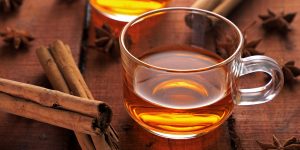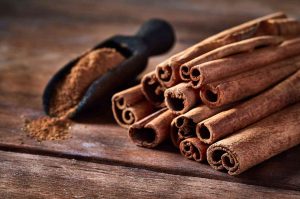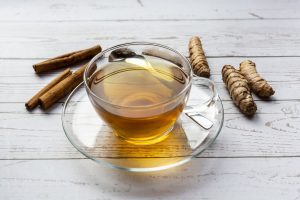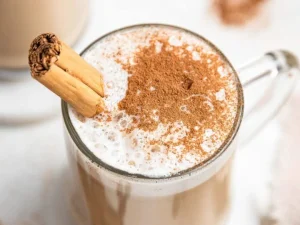
Cinnamon tea and malaria treatment. It has not been shown to be a cure or treatment for malaria, and it should never be used in place of prescription antimalarial drugs. There is no solid proof that cinnamon tea may successfully treat the illness in people, even though lab tests indicate that cinnamon extracts have antiparasitic qualities.
Malaria is a dangerous and potentially lethal illness that needs to be treated with antimalarial medications that have been scientifically demonstrated to work.
CINNAMON TEA AND MALARIA TREATMENT
A useful supplemental treatment for malaria symptoms is cinnamon. You can take advantage of its therapeutic qualities by brewing it as a tea, combining it with honey, or adding it to milk. To guarantee safety and effectiveness, cinnamon must be used in conjunction with traditional medical treatments and under a doctor’s supervision.
1. Select High-Quality Cinnamon;

– Choose the Right Type: Ceylon cinnamon is often preferred over Cassia cinnamon due to its lower coumarin content, which can be harmful in large amounts.
– Form: You can use cinnamon sticks or ground cinnamon, depending on availability and preference.
2. Prepare Cinnamon Tea;

Cinnamon tea is a soothing way to consume cinnamon and can help manage symptoms like fever and chills associated with malaria.
– Ingredients:
– 1-2 cinnamon sticks or 1 teaspoon of ground cinnamon
– 2-3 cups of water
– Honey and lemon (optional for taste)
Instructions:
1. Boil Water: Bring 2-3 cups of water to a boil in a pot.
2. Add Cinnamon: If using cinnamon sticks, add 1-2 sticks to the boiling water. If using ground cinnamon, add 1 teaspoon.
3. Simmer: Reduce the heat and let it simmer for 10-15 minutes. For a stronger flavor, you can simmer longer.
4. Strain: After simmering, strain the tea into a cup to remove the cinnamon sticks or any undissolved ground cinnamon.
5. Add Flavor: Add honey and lemon to taste, if desired, to enhance the flavor and provide additional soothing properties.
Dosage:
• Drink the cinnamon tea 2-3 times a day. This can help with symptoms such as fever and chills.
3. Cinnamon and Honey Mixture;

CINNAMON TEA AND MALARIA TREATMENT
Another method is to prepare a mixture of cinnamon and honey, which can be taken directly.
Ingredients:
– 1 teaspoon of ground cinnamon
– 1 tablespoon of honey
Instructions:
1. Mix Ingredients: Combine 1 teaspoon of ground cinnamon with 1 tablespoon of honey in a small bowl.
2. Consume: Take this mixture once or twice daily.
4. Cinnamon Milk;

CINNAMON TEA AND MALARIA TREATMENT
Cinnamon milk can be a comforting drink, especially before bedtime.
Ingredients:
– 1 cup of milk (dairy or non-dairy)
– 1 cinnamon stick or 1 teaspoon of ground cinnamon
– Honey (optional for taste)
Instructions:
1. Heat Milk: Heat 1 cup of milk in a saucepan until it is warm (not boiling).
2. Add Cinnamon: Add 1 cinnamon stick or 1 teaspoon of ground cinnamon to the milk.
3. Simmer: Allow it to simmer for 5-10 minutes, stirring occasionally.
4. Strain: If using a cinnamon stick, remove it before drinking. If using ground cinnamon, stir well before consuming.
5. Add Honey: Add honey to taste, if desired.
Dosage:
– Drink this mixture once daily, preferably before bedtime.
5. Safety Precautions
– Consult a Healthcare Provider:

CINNAMON TEA AND MALARIA TREATMENT
Always consult with a healthcare provider before using cinnamon as a treatment, especially if you are already taking antimalarial medication or have any other health conditions.
– Monitor for Side Effects:
While cinnamon is generally safe, consuming large amounts can lead to side effects such as mouth sores or liver damage due to coumarin, especially if using Cassia cinnamon. If you experience any adverse effects, reduce the amount or frequency of intake, or discontinue use.
– Use with Caution in Pregnancy:

CINNAMON TEA AND MALARIA TREATMENT
Cinnamon should be used with caution during pregnancy. Consult with a healthcare provider to ensure it’s safe for use.
Summary
Because of their anti-inflammatory and antioxidant qualities, cinnamon can be used as an additional treatment to help reduce malaria symptoms. It can be used in a supportive care routine, but it shouldn’t take the place of traditional medical treatment